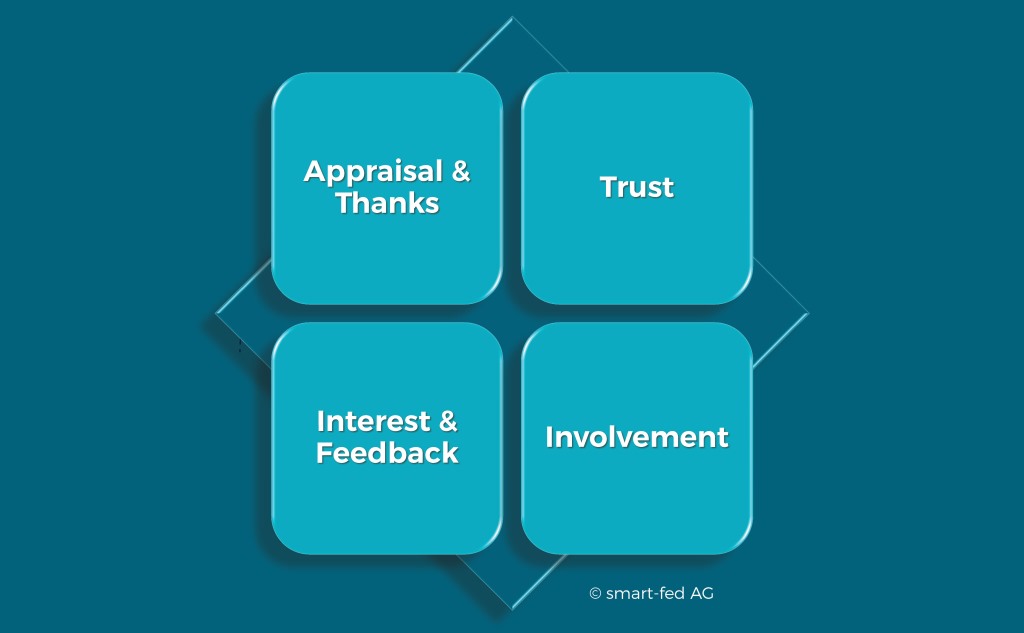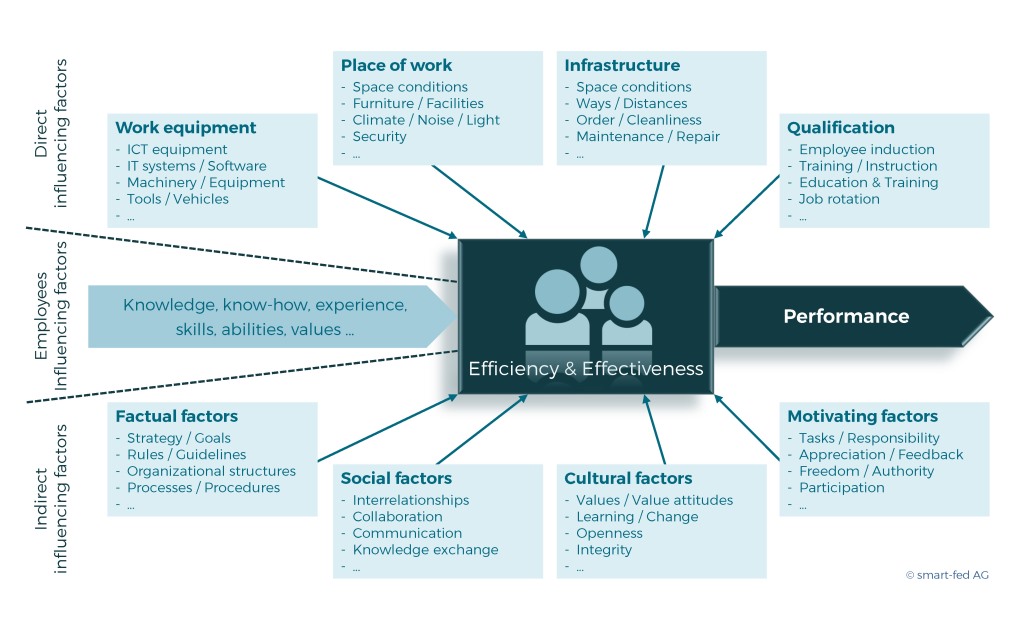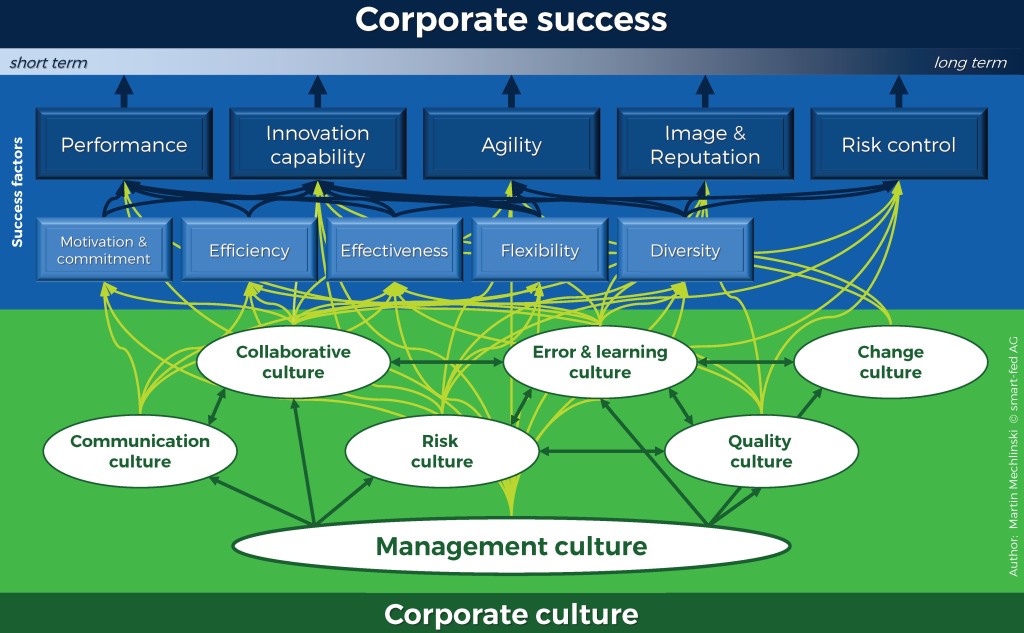Low response rates?
The real reasons behind employee survey fatigue.
The response rates for employee surveys, but also their use itself, have been declining in many companies for years. On the other hand, we read every day how important it is to listen more closely to employees in the face of topical changes in the world of work. So what is going wrong here?
Much is written about the causes and reasons for the high survey fatigue. Particularly striking are the many academic discussions about the correct formulation of questions or the best grading of evaluation scales. Others demand that employees should be surveyed even more frequently. That is, weekly or monthly pulse resp. microsurveys instead of once a year.
But the latter in particular is the proverbial shot in the foot. Does anyone seriously believe that repeating something “unpopular” even more often will make it more popular?
Employees do not want constantly to evaluate something
If you talk to employees, you will hear the following statements in particular about employee surveys.
No, they don’t want to have to constantly evaluate their mood, satisfaction, or commitment. Nor do they want to have to constantly evaluate the working atmosphere or their experience.
Especially not if, for example,
- poor ratings in satisfaction and commitment are blamed on themselves;
- they are taken to task by their superiors for bad evaluations;
- they are punished for bad evaluations as troublemakers (e.g. in terms of wages, bonuses or promotion);
- they have to solve the causes resp. problems for bad ratings themselves;
- they have to solve problems that are not their problems at all;
- their evaluations only serve reporting purposes without really changing anything in the organization;
- their real problems and challenges do not play any role at all in the surveys.
All of these and other corporate behaviors have contributed significantly in recent decades to the fact that the fundamentally good idea behind the employee survey has suffered more and more.
Employees want to give feedback
In addition, there are social developments that have changed the younger generation’s attitude to feedback in particular.

Young employees want to give feedback. However, this is subject to the preconditions that
- they themselves can determine when and for what they give feedback;
- they can give feedback at any time on anything that is relevant to them in their everyday lives, at their workplace and in their job;
- the protection of their anonymity remains guaranteed under all conditions;
- the feedback is concrete and meaningful and not a general mood query resp. evaluation;
- you can give simple and direct feedback without spending hours pondering the right wording or the right value on a scale.
At the same time, most employees are well aware that their feedback initially reflects their very personal opinion resp. perception. They therefore do not expect immediate action.
Only where individual opinions resp. perceptions accumulate in the organization is timely and targeted action expected.
Companies that want to make organization-related employee feedback attractive and sustainable again should therefore choose an approach that can actually meet these expectations of the younger generation.
⇒ Author: Martin Mechlinski / SMART FED
Low response rates?
The real reasons behind employee survey fatigue.

The response rates for employee surveys, but also their use itself, have been declining in many companies for years. On the other hand, we read every day how important it is to listen more closely to employees in the face of topical changes in the world of work. So what is going wrong here?
Much is written about the causes and reasons for the high survey fatigue. Particularly striking are the many academic discussions about the correct formulation of questions or the best grading of evaluation scales. Others demand that employees should be surveyed even more frequently. That is, weekly or monthly pulse resp. microsurveys instead of once a year.
But the latter in particular is the proverbial shot in the foot. Does anyone seriously believe that repeating something “unpopular” even more often will make it more popular?
Employees do not want constantly to evaluate something
If you talk to employees, you will hear the following statements in particular about employee surveys.
No, they don’t want to have to constantly evaluate their mood, satisfaction, or commitment. Nor do they want to have to constantly evaluate the working atmosphere or their experience.
Especially not if, for example,
- poor ratings in satisfaction and commitment are blamed on themselves;
- they are taken to task by their superiors for bad evaluations;
- they are punished for bad evaluations as troublemakers (e.g. in terms of wages, bonuses or promotion);
- they have to solve the causes resp. problems for bad ratings themselves;
- they have to solve problems that are not their problems at all;
- their evaluations only serve reporting purposes without really changing anything in the organization;
- their real problems and challenges do not play any role at all in the surveys.
All of these and other corporate behaviors have contributed significantly in recent decades to the fact that the fundamentally good idea behind the employee survey has suffered more and more.
Employees want to give feedback
In addition, there are social developments that have changed the younger generation’s attitude to feedback in particular.
Young employees want to give feedback. However, this is subject to the preconditions that
- they themselves can determine when and for what they give feedback;
- they can give feedback at any time on anything that is relevant to them in their everyday lives, at their workplace and in their job;
- the protection of their anonymity remains guaranteed under all conditions;
- the feedback is concrete and meaningful and not a general mood query resp. evaluation;
- you can give simple and direct feedback without spending hours pondering the right wording or the right value on a scale.
At the same time, most employees are well aware that their feedback initially reflects their very personal opinion resp. perception. They therefore do not expect immediate action.
Only where individual opinions resp. perceptions accumulate in the organization is timely and targeted action expected.
Companies that want to make organization-related employee feedback attractive and sustainable again should therefore choose an approach that can actually meet these expectations of the younger generation.
⇒ Author: Martin Mechlinski / SMART FED









